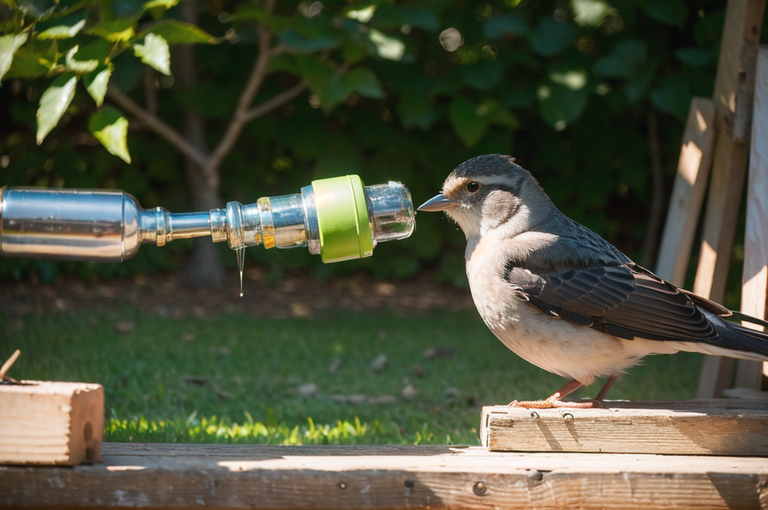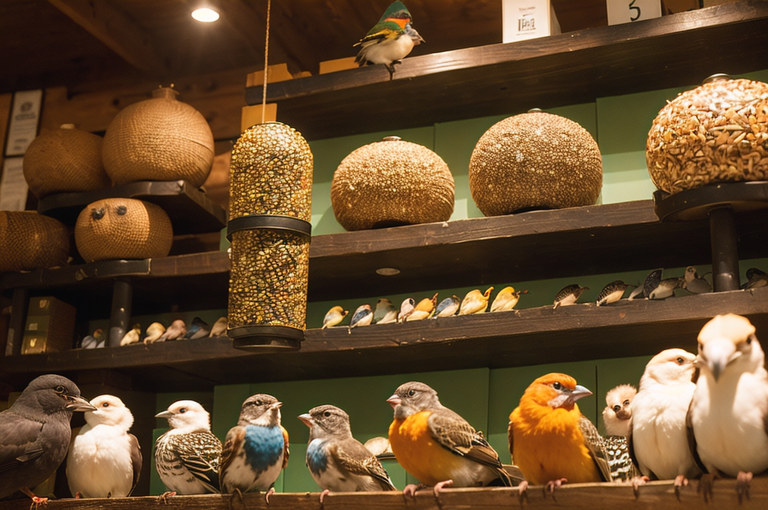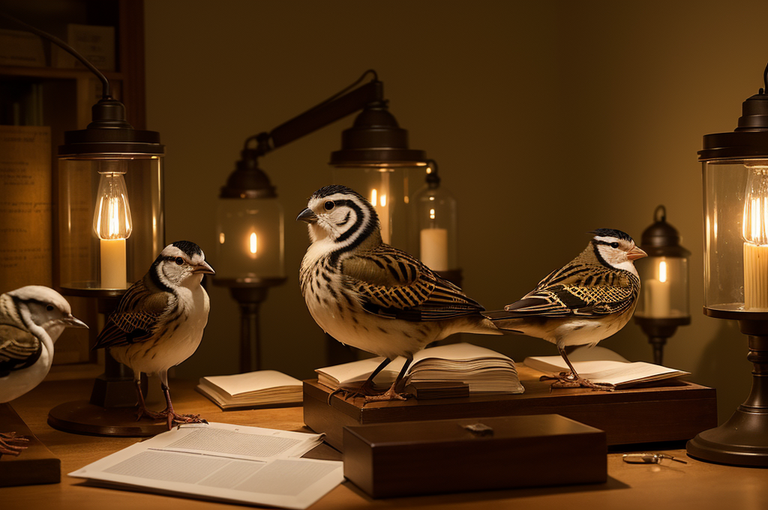Essential Guide to Buying, Storing, and Managing Bird Feed

The article details buying and storing bird feed, dealing with pests, and exploring online purchases with flexible return policies. It mentions loyalty programs and operating hours of stores.
Importance of Black Oil Sunflower Seed in Bird Feeding
My fondness for the world of avians often leads me to the crux of many fervent discussions among bird supporters. One particular topic that frequently graces these forums is the use of black oil sunflower seed in bird feeding.
The Popularity of black oil sunflower seed among bird enthusiasts
It’s pure enchantment, nurturing backyard ecosystems from a bird lover’s perspective. While there are several types of bird feeds, the centerpiece of most diets is the black oil sunflower seed. Something about this seed, perhaps its delightfully crunchy hull or its high oil content, makes it incredibly appealing to a wide variety of birds. It’s like opening a 20 lbs wild bird seed food bag and finding it full of irresistible avian treats.
The Benefits of using this seed in bird feeding
But allure alone doesn’t make black oil sunflower seeds the reigning champ of bird feeds. It’s their astonishing nutritional value to our feathered friends that places them firmly at the top. Packed with essential fats, proteins, and fibers, these seeds are a veritable superfood for the birds, bringing a new vitality to their high flying lives.
Adventure often leads me to bird loving communities that buy bird feed by the handful or should I say, by the barrel. Large quantity purchases are not uncommon among birdwatchers. Be it the bustling yards of Michigan or the towering alpine woodlands, it’s easy to spot containers brimming with black oil sunflower seeds.
Each seed we offer, every loving peck they take — it brings us one step closer to understanding these enthralling creatures. It’s not just food we’re providing. It’s an invitation to delve deeper into their world, to play a part in sustaining their ecosystems, to be part of a medley that composes the symphony of life.

Purchasing Bird Feed
As an ornithologist, I’ve learned the significance of catering to a diverse bird palette. Yes, every wild bird is different, and the key lies in the food you fill in their feeders.
Different places to buy bird feed.
While I have attempted buying bird feeds from various sources, my personal favorite has been Tractor Supply. It’s not just your everyday discount grocer, but a haven for bird fanatics who love to experiment with a variety of feeds and seeds. Their 20 lb wild bird seed selection is exceptional. Plus, paying a visit to the closeout/discount grocery stores isn’t a bad idea either. You might lose yourself in the aisle of rich, wholesome, wild bird seeds they have on display.
Online shopping for bird food.
Sometimes, time is a commodity hard earned and shopping for bird feed becomes a task not easily fit into a busy day. For times such as these, online shopping is the challenge solver. The plethora of online platforms have not made buying bird food any simpler, but expanded variety whilst including fascinating delivery options.
Advantage of loyalty programs for in-store purchases.
Whoever said loyalty doesn’t pay hasn’t been a frequent customer to stores with clever loyalty programs. Earning store credit and receiving exclusive promotions are just a few of the benefits. It’s a delight to the shopper in me and an advantage to my feathered friends. They too occasionally relish the perks of my accrued points feeding on the result of my rewarding loyalty.
Remember, feeding wild birds is more than an act of providing sustenance. It’s an offering made to nurture, sustain, and celebrate them. So the next time you are shopping for feeds, take a moment to consider the value of your choice, for it could be a feast for a hungry beak, or an enticing lure for a rare, shy visitor.

Bird Feed Storage
Ah, the virtue of a well stored economy mix wild bird feed is something only a true bird enthusiast would understand and appreciate.
The Significance of Keeping Bird Feed Secure and Dry
I cannot impress upon you enough how seemingly trivial elements such as secure and dry storage of bird feed, undoubtedly impacts their longevity and freshness. Much like the ripe age of a redwood tree, bird feed also has its golden period where it is at its flavorful best. Just as a good oak barrel optimizes the age of wine, bird feed needs to be stored under dry conditions to prevent it from getting moldy and losing its nutritive value, which our avian friends so cherish.
Storage Solutions Suited for Bird Feed
With each dawn, comes a bright opportunity to make things seamless and more elemental. Certain things I have found effective in my pursuit of perfection in storing bird feed include tight lidded trash cans. An unused pantry shelf or a solitary corner in your garage or shed works wonders too if used effectively.
Consequences of Incorrect Bird Feed Storage
Beyond the realm of the obvious, lurk elements unknown to many that seem to wage a quiet war on our dear bird feed. Pests like mice or raccoons, with their ever so sharp noses can find their way to the stash if it is not stored properly. Please take heed and do not underestimate the tenacious will of these tiny marauders. Their determination might be commendable, but we must remain a step ahead for the sake of our feathered companions.
Taking additional measures such as placing the feed container on an elevated surface or enclosing them within mechanically improvised walls could add an extra layer of protection against these unwelcome guests. This world, as vast and diverse as it is, holds a place for us all, but let us find a balance that works everywhere.

Dealing with Pest Problems Related to Bird Feed Storage
As an ornithologist and winged wanderer, I’ve come across many a wild bird chalet enduring the unwelcome intrusion of a different species. Yes, those pesky pests, seeking out bird feed storage. They’re a common hurdle for us bird enthusiasts. From nocturnal raccoons to scurrying mice, these uninvited diners can considerably impact our avian friends’ next meal.
The Likelihood of Pests Interfering with Bird Feed Storage
It’s as if they can smell the sunflower seeds from a mile away, drawn to our lovingly arranged bird chalets. Believe me, from years of observing and dealing with this issue, I assure you it isn’t a rare occurrence.
Pest Types and Their Impact on Storage
Oftentimes, it’s the raccoons, with their ingenious knack for unlocking and spilling feeders, that pose a challenge. Mice, too, can cause significant damage, nibbling away at bags of seed left in storage. These little invaders can swiftly reduce a hearty supply intended for winter feeding into a scattered mess or an empty shell.
Solutions to Deal with Pests
To discourage theft and subsequent upset to our feathered friends, several measures can be taken. Securing the lids of storage containers with bungee cords can effectively bamboozle the wily raccoon. As for the scurrying mice, ensure your feed is kept in heavy duty plastic containers or steel bins as these storage solutions prove most effective against their insistent gnawing.
With such precautions, our bird chalets can remain the peaceful havens we intend for them to be, untouched by whiskers and paws, and brimming with delectable treats for our avian companions. After all, the nourishment of our flying friends is worth the extra mile, isn’t it?
Buying Regulations and Policies for Bird Food
As I raise my binoculars with the first light of dawn, it strikes me how important it is to be informed about the regulations and policies that affect our shared passion for our feathered friends. Whether you’re buying bulk supplies of the 20 lbs wild bird seed food, or a bag of the economy mix wild bird feed, knowledge of store policies can be a real boon.
Operating Hours of Stores Selling Bird Food
Experiencing the wild bird chalet in my own backyard makes me appreciate the comfort and convenience of online shopping platforms. They offer round the clock service, unlike brick and mortar establishments that have defined working hours which might not always fit well with individual schedules.
Return Policy for Online Purchases of Bird Food
When procuring your 20 lb wild bird seed online, the return policy warrants equal importance as the product itself. Many online vendors have specific conditions for returns – some might require you to pay the return shipping costs, while others may only accept unopened packages. Always do your due diligence to ensure you agree with the policy before making a purchase.
The Benefits of a Flexible Return Policy
A flexible return policy, my dear friends, is like a soothing song of a Northern Cardinal. It’s calming, reassuring, and beneficial, especially if you are buying bird food in larger quantities. Accepting returns without a hitch makes online purchasing a much more enjoyable experience, almost akin to the magical moments when a rare bird takes off into flight.
Dealing with regulations and policies might feel a little laborious, like the endless pecking of a woodpecker at first, but they serve to protect both buyers and sellers in this ever interconnected ecosystem of commerce. So, when it comes to bird food, don’t forget to take a keen, birdwatcher’s eye to the policies that surround your purchases.


